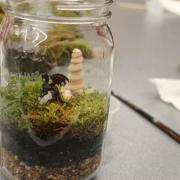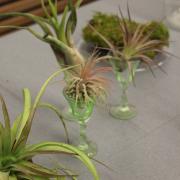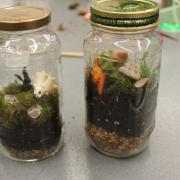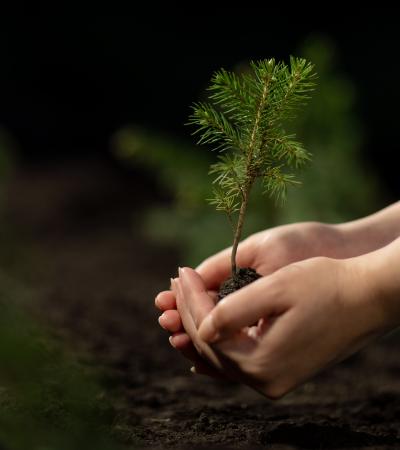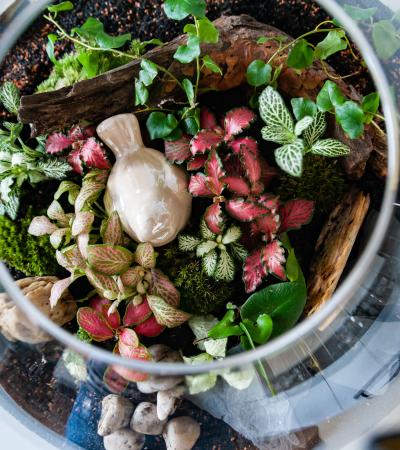It's easy being green! In this class we used recycled jars to create miniature moss terrariums featuring such materials as crystals, mushrooms and tiny toys for patrons to take home and display. All supplies were provided.
Advanced Planning
This program was inspired by the concept of reduce, reuse and recycle. We connected with a local family-owned nursery that specialized in terrariums, mosses and fairy gardens to lead this educational program. The nursery provided all the materials, and the staff members of the Patience S. Latting Northwest Library collaborated to gather recycled materials for customers to use.
Marketing
Posters and fliers were created in-house and displayed within the library for two to three weeks prior to the program. (View the flier under Attachments at right.) We also advertised the event on Facebook and Twitter with the help of our in-house marketing department.
Budgeting
The initial cost of the first program was $150, which was spent on supplies such as soil, moss and toys. However, we were able to offer the program two more times for two other age groups with a replenishment cost of $50 to 75. When I first approached the family-owned nursery I stated the budget we could offer and asked if they could work with that amount. They were more than happy to accommodate us!
Day-of-event Activity
The local nursery representative began by teaching about the types of plants in terrariums, the differences between closed and open terrariums and how to pick your plants and maintenance. After her presentation, the members of the class each selected one jar to begin creating their enclosed moss terrarium.
The representative offered explanations of why certain materials were used as the participants made their craft. The final product was awesome! Customers had the opportunity to decorate their terrarium with toys, sea shells and natural rocks. Everyone’s terrarium had their own fun look, some with dragons, others with dinosaurs, farm animals or rocks and shells.
Program Execution
The presenter was able to share their expertise and had a lot of fantastic questions. Some of the questions included customer inquiries about caring for fairy gardens, how to plan their terrariums and small garden spaces and what would work in varying climates.
We welcomed 21 participants to join us for the class, which was so successful and well-received that we offered it again to 10 grade school students for a makerspace program, and a third time as an outreach event at a senior center. The initial event was scheduled to start at 7 p.m. and last about one hour, but because of the great questions it ran about 15 minutes long.
Advice
Ask your staff for help in gathering materials like recycled jars and vintage toys! It is a great way to get everyone involved and knowledgeable about the program.

